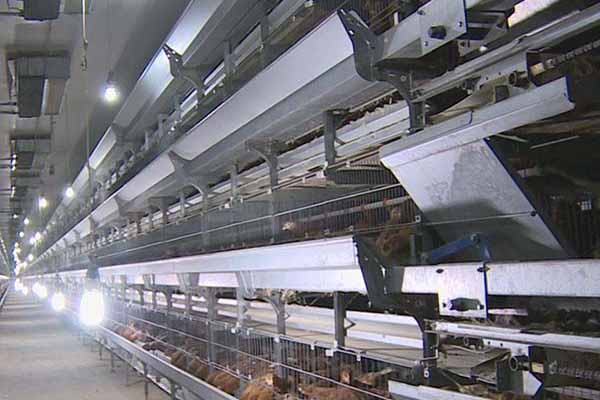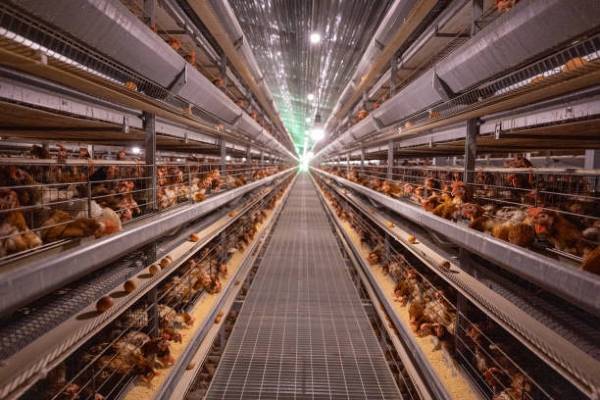Kuku Farming in Kenya: A Thriving Industry
Time : 2025-05-12
When you think of farming in Kenya, chances are you think of tea, coffee, or even maize. However, there’s another farming venture that’s been gaining momentum – Kuku farming. Yes, you heard it right – chicken farming. It’s not just about eggs and meat anymore. Let’s dive into the world of Kuku farming in Kenya, a sector that’s making waves!
The Rise of Kuku Farming in Kenya
Farming in Kenya has evolved over the years. The introduction of exotic breeds like the White Leghorn, Rhode Island Red, and the Black Australorp has revolutionized the poultry industry. Today, Kuku farming is one of the fastest-growing agricultural sectors in the country, contributing significantly to both the rural and urban economies.
Several factors have contributed to this growth. Firstly, the rising demand for chicken meat and eggs in local and international markets has opened new opportunities for farmers. Secondly, the availability of affordable inputs and technology has made it easier for farmers to start and expand their Kuku farms.
Starting a Kuku Farm: What You Need to Know
So, you want to dive into Kuku farming in Kenya? Great decision! Here’s a step-by-step guide to get you started:
1. Research and Choose the Right Breed
The first step in Kuku farming is to choose the right breed. As mentioned earlier, White Leghorn, Rhode Island Red, and Black Australorp are popular choices. However, other breeds like the Buckeye and the Wyandotte can also be considered.
When choosing a breed, consider factors like the purpose of the farm (breeding, layering, or meat production), the climate of your region, and the demand in the market.

2. Find a Suitable Location
Your farm’s location is crucial. It should be easily accessible for suppliers and customers. Also, ensure that the area is conducive for raising chickens, considering factors like temperature, humidity, and predator activity.
3. Get the Necessary Permits and Legal Documentation
Before you start building your chicken coop or buying chicks, ensure that you have the necessary permits and legal documentation. This includes a farm permit, business registration, and insurance.
4. Build or Purchase a Chicken Coop
A chicken coop is where your flock will spend most of their time. It should be spacious, well-ventilated, and secure from predators. The size of the coop will depend on the number of chickens you plan to raise.
5. Feed and Water Your Chickens
A balanced diet is crucial for healthy chickens. Ensure that your chickens have access to quality feed, fresh water, and clean nesting areas. Regularly monitor their health and seek professional advice if needed.
The  Benefits of Kuku Farming in Kenya
Benefits of Kuku Farming in Kenya
Kuku farming in Kenya offers several benefits to farmers, the local economy, and consumers.
1. Economic Benefits
Farming chickens is a cost-effective way to generate income, especially for small-scale farmers. With the right approach, it’s possible to achieve a good return on investment within a short period.
2. Nutritious and Affordable Protein Source
Chicken meat and eggs are rich sources of protein and essential nutrients. As demand for protein increases, Kuku farming ensures a reliable and affordable supply of nutritious food.
3. Job Creation
The Kuku farming industry creates employment opportunities, not only for farmers but also for those working in feed mills, processing plants, and retail sectors.
Challenges Faced by Kuku Farmers in Kenya
Despite the many benefits of Kuku farming in Kenya, the industry faces several challenges. These include:
1. High Input Costs
Feed, medication, and other inputs can be quite expensive, especially for small-scale farmers. This can be a significant barrier to entry and growth.
2. Disease Outbreaks
Chickens are prone to various diseases, which can be costly and devastating to the farmer. Effective disease control measures, like vaccination and biosecurity, are crucial to mitigate these risks.
3. Market Access
Limited market access and lack of infrastructure can hinder the growth o f the Kuku farming industry. Farmers often struggle to get their produce to consumers due to lack of transport and storage facilities.
f the Kuku farming industry. Farmers often struggle to get their produce to consumers due to lack of transport and storage facilities.
The Future of Kuku Farming in Kenya
Despite the challenges, the future of Kuku farming in Kenya looks promising. As the demand for protein continues to grow, farmers who embrace modern farming techniques, seek out new markets, and collaborate with government agencies and private organizations are more likely to succeed.
In conclusion, Kuku farming in Kenya is a thriving industry that offers numerous benefits. By understanding the challenges and leveraging the available opportunities, farmers can create sustainable businesses and contribute to the growth of the sector.











